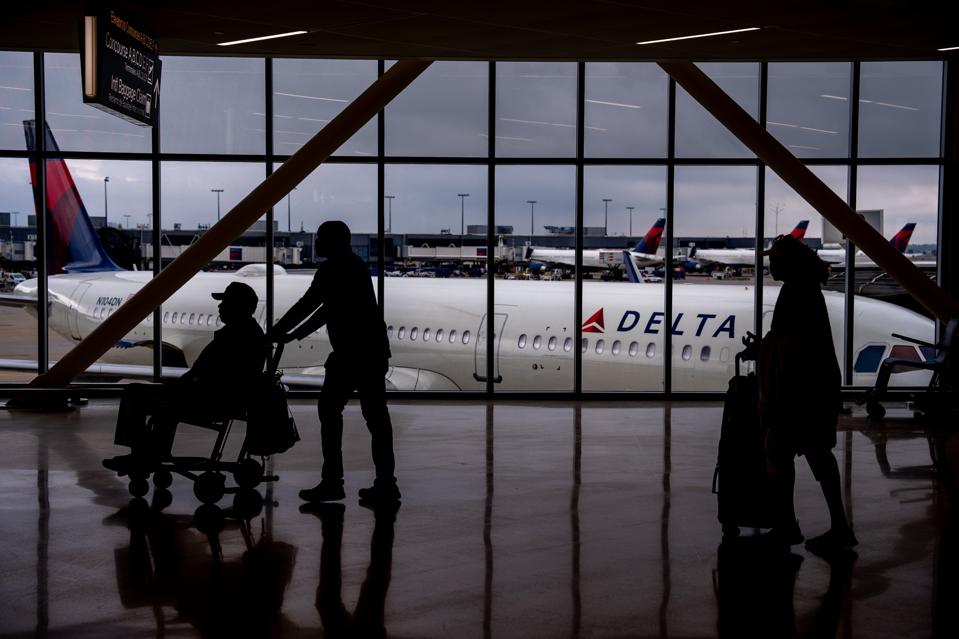Loyalty isn’t just earned at 30,000 feet—it’s earned in the morning coffee line, during the ride to the airport, and across a constellation of brand touchpoints. That’s the vision Dwight James, Delta Air Lines’ Senior Vice President of Customer Engagement & Loyalty as well as CEO of Delta Vacations, is shaping into reality.
Delta is moving beyond the traditional “earn and burn” model to architect a lifestyle ecosystem. One that delivers emotional resonance, not just rewards. And they’re doing it through powerful partnerships, personal technology, and a loyalty experience designed to meet people where they live—not just where they fly.
Loyalty as an Ecosystem: Over 100 Million Members
“Historically, loyalty meant earning and redeeming miles,” James explained. “But for us, it’s now holistic. It’s reliability, value, and elevated experiences—it’s how people feel when they walk away from a Delta interaction.”
Josh Kaehler, Managing Director of Loyalty Partnerships at Delta, echoed that sentiment: “When we say ecosystem, it’s about the range of reasons someone engages with Delta—and how we can keep those reasons connected. We want to go beyond just linking and earning. It’s about strategic partnerships that build brand love and drive daily engagement.” Kaehler has to imagine these new relationships at scale to drive more personalization at scale — 100,000,000 members with expectations continue to evolve.
That emotional flywheel is central to Delta’s plan: more ways to earn, more reasons to remember, and more moments that matter—even when you’re not flying.
Partnerships That Scale Emotional Connections and Frequency
Delta’s partnerships with Starbucks and Uber are examples of what Kaehler calls “frequency amplifiers.”
“People engage with Uber and Starbucks more often than they fly,” he said. “Those brands already have deep emotional connections with customers. If we can piggyback on that frequency and that brand love, it’s a halo for Delta.”
Camille Irving, GM of U.S. & Canada Mobility at Uber, described the partnership similarly: “No one brand owns the entire travel journey. Our work with Delta is about creating a ‘double delight’—seamless experiences, with rewards that resonate.”
The goal? More touchpoints. More visibility. More daily relevance. Emotional connectionsat scale.
SkyMiles Experiences: From Fantasy to Frequency
While aspirational moments—like flying Delta One to Europe—are core to the loyalty engine, Delta is increasingly focused on broadening its appeal to travelers who may only fly a few times a year.
Delta’s SkyMiles Experiences platform, recently relaunched, offers everything from once-in-a-lifetime events to more attainable everyday cultural perks and live events. “We want members to find value whether they have 10,000 miles or 5 million,” Kaehler explained. “It’s not just about the big-ticket dream. It’s about consistent, daily ways to engage.”
That’s why Delta has integrated partner-driven experiences, like a private tasting at Starbucks’ original Pike Place store and has hinted at more curated events to come through collaborations with brands like Uber and the PGA Tour.
As Kaehler noted: “If you fly into JFK, catch a ride with Uber, grab coffee at Starbucks, and then use SkyMiles to attend a concert at MSG—that’s what ecosystem loyalty looks like. And that’s what we’re building.”
Personalized, Predictive, and Context-Aware
Delta’s loyalty team sees personalization as the next frontier.
James described it this way: “It’s about offering the next best thing—tailored to who you are and where you are in life. A Gen Z traveler doesn’t need a Reserve card pitch on day one. They need something that feels like it was designed for them, today.”
Delta’s tech roadmap includes the Concierge feature previewed at CES, aimed at giving travelers customized itinerary guidance, travel updates, and curated offers.
Meanwhile, Uber’s ecosystem—now boasting over 30 million Uber One members—continues to evolve into a subscription-based platform for rides, food delivery, car rentals, and more. “We believe a trusted brand like Uber can reduce the need for personal car ownership,” Irving said. “And that’s not just about utility. It’s about lifestyle alignment.”
Loyalty in a Shifting Competitive Landscape
With other carriers receiving backlash for loyalty program changes, Delta is doubling down on clarity and trust.
“There’s clearly customer confusion out there,” James said. “We’re seeing people reach out, wanting to understand our program. And we’re ready to welcome them.”
That open-door strategy is paying off. Delta recently surpassed 1 million new co-branded credit card sign-ups in a year, driven by satisfaction with the updated SkyMiles program and a steady stream of engagement opportunities.
Kaehler emphasized that partnerships aren’t just about customer acquisition—they’re about retention. “These collaborations don’t just bring in new members,” he said. “They help keep them active—even in years they don’t fly.”
According to a 2024 Harvard Business Review Study, there are four distinct consumer segments that spend their reward points and cash differently:
-
Money Advocates
Prefer to hold cash and spend points first—even when both have the same value. For them, cash is psychologically more “valuable.”
-
Currency Imperialists
Treat points and cash as interchangeable. They’ll spend either based on convenience or need, not emotion.
-
Point Gamers
Strategists who seek maximum redemption value, hunting for the best deals. They enjoy the “game” of beating the system.
-
Point Lovers
Emotionally attached to points—often preferring to spend them even when it’s not the best financial value. They value the experience or status more than raw economics.
Final Boarding Call: Loyalty as Lifestyle
From lounges in Minneapolis to ride shares in Miami, Delta is connecting the dots between travel, taste, and technology. The airline isn’t trying to win every route—it’s trying to win every moment.
“There are customers who are Uber lovers and Starbucks lovers who now become Delta lovers,” Kaehler said. “And that’s the point. We’re not just building loyalty—we’re earning mindshare and emotion every single day.”
Delta’s ecosystem strategy isn’t about transactional perks. It’s about touchpoints that make people feel seen, known, and valued.
And in a category where airlines compete on price and routes, Delta’s secret weapon may just be something harder to quantify—but far more powerful: emotional equity.

